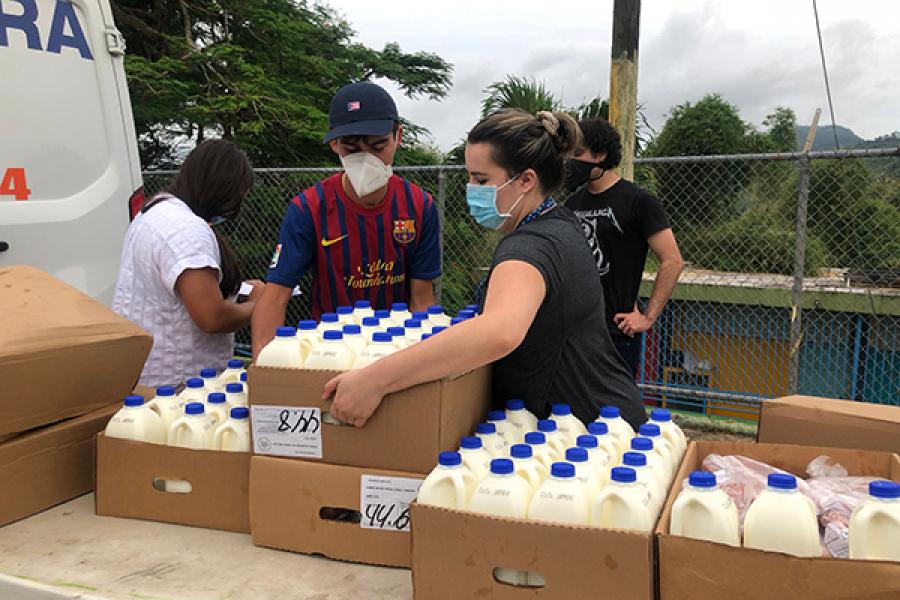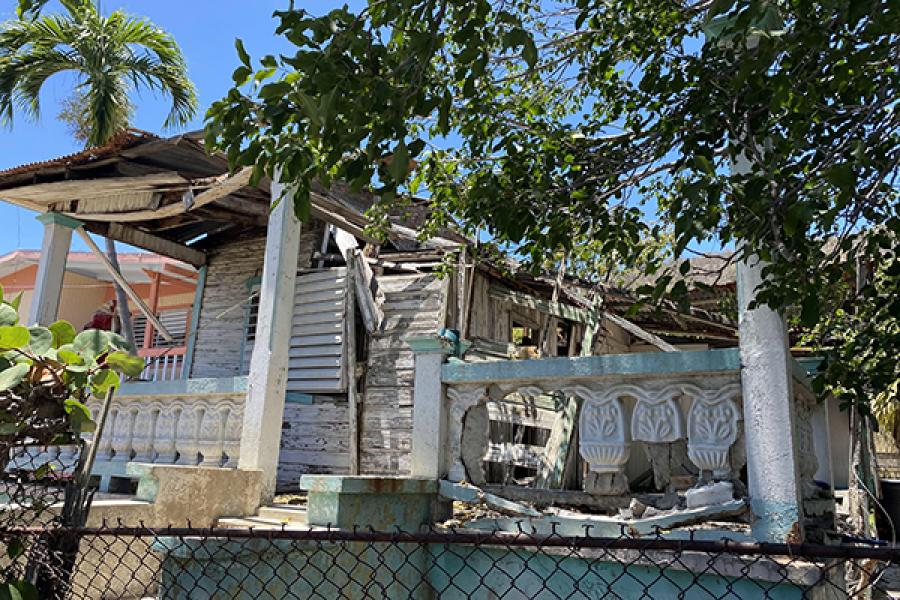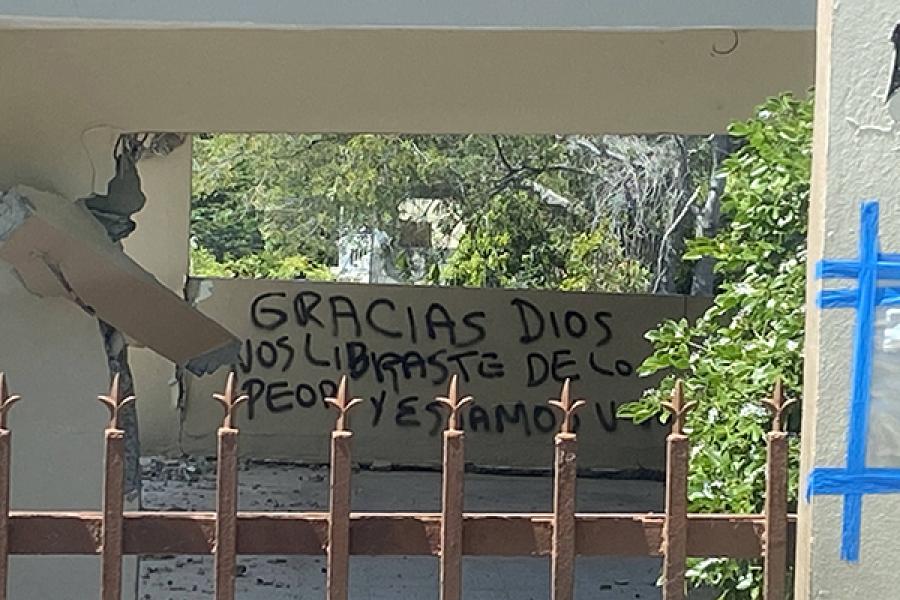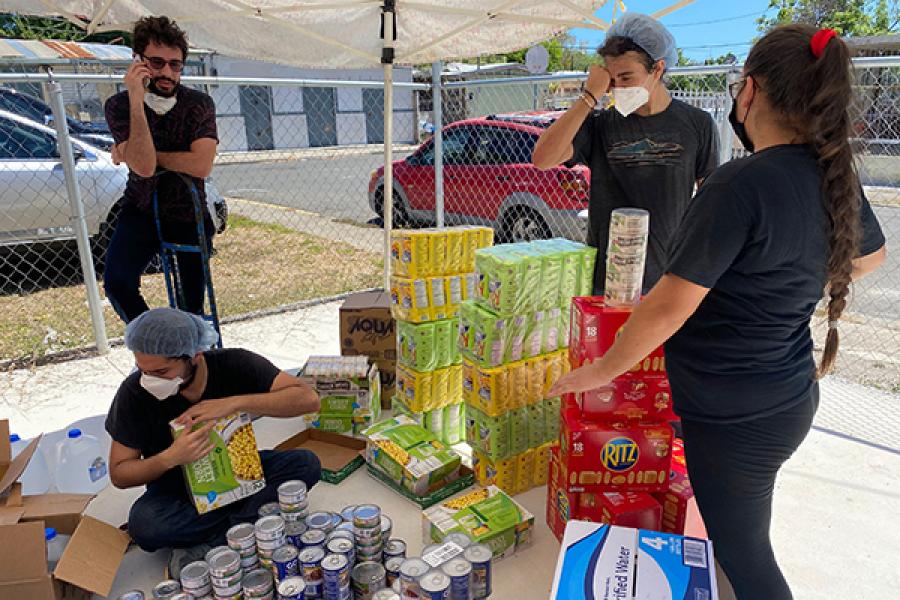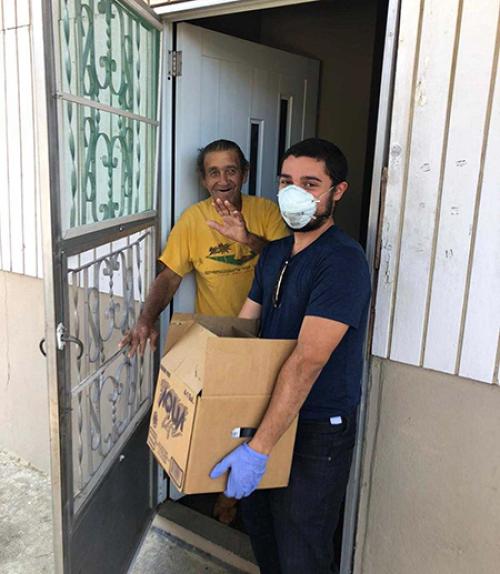When the COVID-19 pandemic hit and Héctor ’20 and Joey Ibáñez ’23 headed home to Puerto Rico, they and fellow college student friends met people who were surviving on saltine crackers and a cup of rice.
Since they were all stuck at home with time on their hands and a desire to help, Héctor and friend Isak Romero, a recent graduate of MIT, started making calls to raise funds and help alleviate the hunger issues on the island.
Now, five months later, their non-profit organization, A Comer Puerto Rico, has helped feed more than 13,000 people and continues to distribute food weekly to both urban and rural communities struggling with poverty and hunger.
The pandemic is only the latest in a series of crises for the island, which was hit hard by Hurricane Maria in 2017 and a string of earthquakes from late 2019 into this year.
“There have always been very philanthropic people on the island, but good spirits can’t replace hard facts,” Héctor Ibáñez said. “All of these things have drained resources for the Puerto Rican people. Things have gotten difficult.”
“We had no idea what to expect in terms of funding, but with our first $1,000 in venture capital, we were able to feed 100 people,” Romero said. “That gave us momentum to keep growing and now we can focus on the areas of greatest need on the island.”
They received a financial boost from TV host Mike Rowe, who featured their organization on his "Returning the Favor" show and passed along a check for $20,000. They also have a GoFundMe site and Joey Ibáñez received a Serve in Place grant through the Office of Engagement Initiatives to help fund some of their work.
The students say meeting people who are living in some of the regions devastated by storms has been heartbreaking.
“Puerto Ricans are an incredibly resilient people. That’s the only way we can stay together is as a community through all of these crises.”
Both Héctor Ibáñez and Romero said they see a new attitude among some of the nation’s younger generation, who in the past would have wanted to move away from the island. Now, many want to earn an education in the U.S. and then return to work for change in Puerto Rico.
“The youth hold the island deep within their hearts and can’t stand to see it suffer,” Héctor Ibáñez said. “The recent political upheaval is highlighting that the youth will not stand by this neglectful government. We have new energy to solve the problems that have gone unsolved.”
